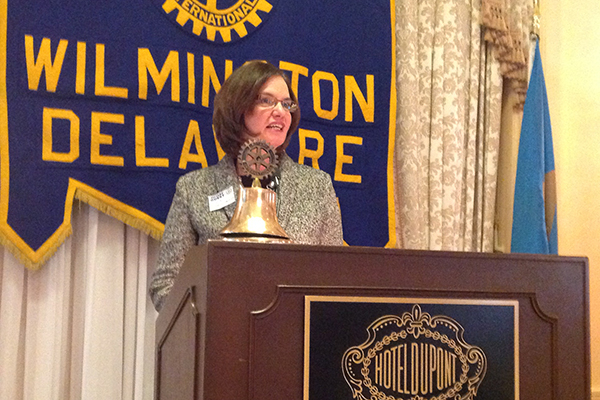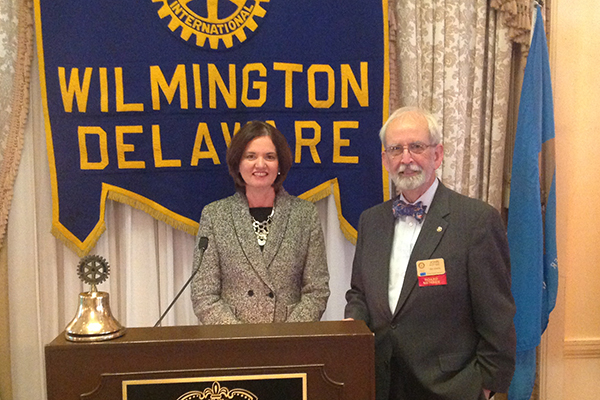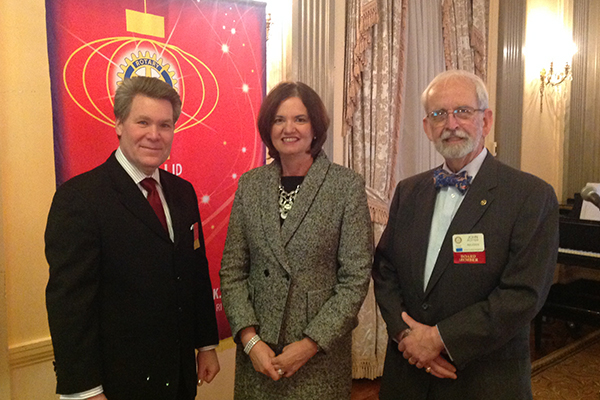


Civil society in Cuba
UD's Aristigueta speaks on 'Role of Civil Society in Leading Change in Cuba'
9:21 a.m., Jan. 22, 2015--The well-publicized changes in the United States’ policies toward Cuba have created a great deal of renewed public interest in Cuba and its social structure.
As a researcher in the field, the University of Delaware’s Maria P. Aristigueta, Charles P. Messick Professor of Public Administration and associate director of the School of Public Policy and Administration, recently presented a talk on “The Role of Civil Society in Leading Change in Cuba” to the members of the Rotary Club of Wilmington.
Global Stories
Fulbright awards
Peace Corps plans
Aristigueta noted that the situation in Cuba and the U.S. foreign policies related to Cuba are changing on a daily basis.
She focused her presentation on one aspect of the proposal outlined by President Barack Obama on Dec. 17, 2014: civil society.
Aristigueta’s presentation was based upon her recent research prompted by the policy developments, as well as her research regarding civil society in Cuba conducted through a U.S. Agency for International Development (USAID) grant in 2007.
Obama made it clear in his proposal that the promotion of civil society in Cuba is a priority. The U.S. will focus on human rights and democratic reforms in Cuba, and promote independence of Cubans so that they no longer will need to rely on their government as they have in the past.
Aristigueta noted that Cuba is home to the longest-standing totalitarian regime in the Western Hemisphere. As such, civil society groups in Cuba are cautiously optimistic about the change in U.S. policy, and want to ensure that four main conditions are met prior to the U.S. re-establishing diplomatic relations with the country:
- Political prisoners need to be released immediately. Elizardo Sánchez of the Cuban Commission for Human Rights and National Reconciliation estimates there are still more than 100 people imprisoned.
- Cuba must ratify the United Nations human rights covenants.
- All “apparatus of repression” must be dismantled, including assaults on “counterrevolutionaries,” arbitrary arrests, demonization and intimidation of those who think differently, and police surveillance of activists.
- The Cuban government must accept the existence of civic structures that have the right to express opinions, decide, question, and choose. These voices that have not been represented in the current negotiations between the governments of Cuba and the U.S.
Many of the Rotarians in attendance for the presentation have visited Cuba during two trips sponsored by the Rotary Club of Wilmington. Rotarian and program chair John Potter has visited Cuba for humanitarian work, and invited Aristigueta to speak about this pressing topic.










